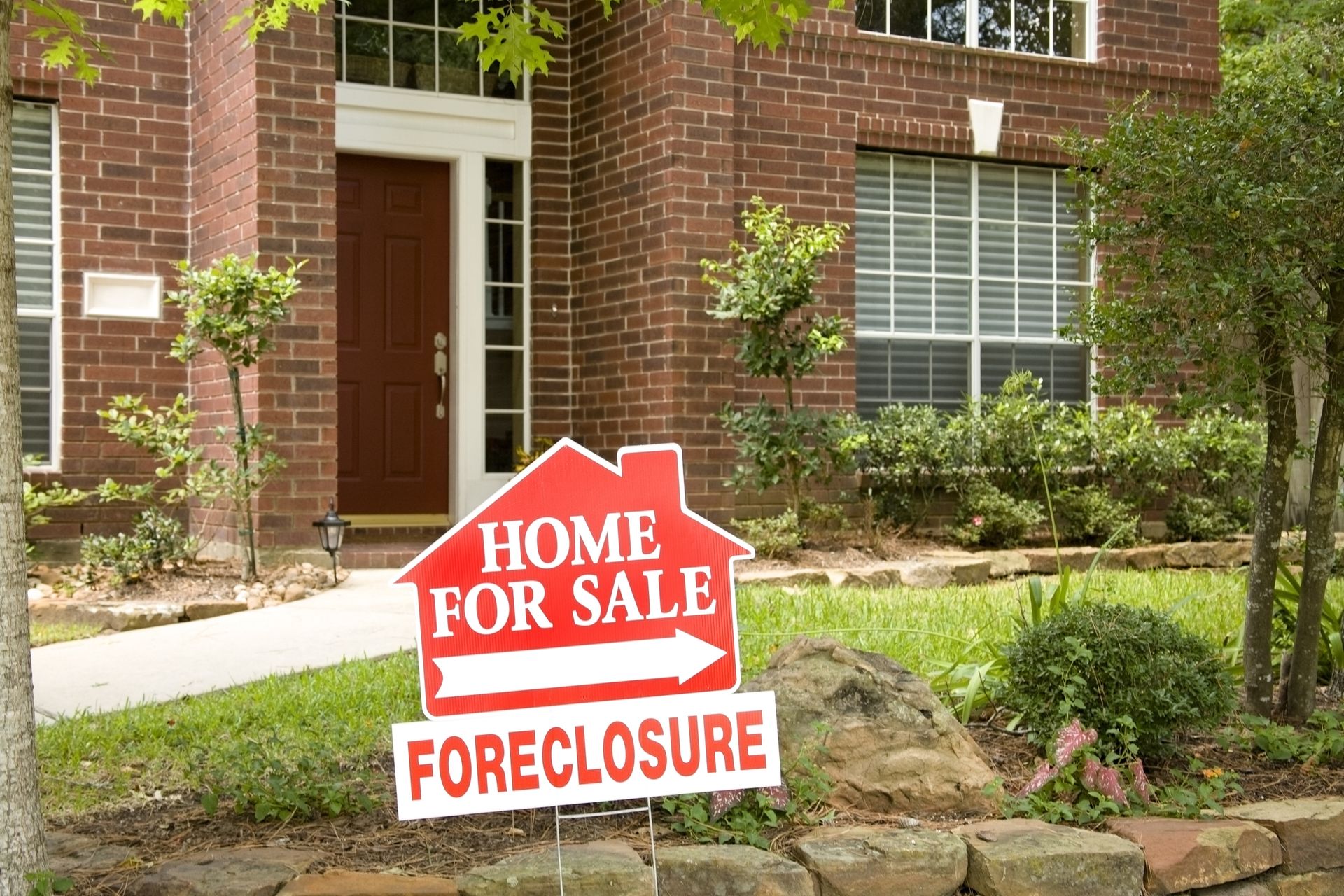Best Foreclosure Listing Sites for Finding Properties
Wondering how to find foreclosed homes for sale for your next residence or to flip for a profit? These websites will guide you to foreclosures and real estate-owned properties to buy.


The past 15 years have been eventful in the U.S. property market, from the foreclosure surge unleashed by the Great Recession, through the COVID-driven real-estate boom to the latest period of rising interest rates, persistent inflation, and mixed signals from the economy.
But within the turbulence and uncertainty, there are opportunities. The ongoing period of high inflation and rising living costs may lead to more foreclosures, short sales, and lender-owned properties (REO, or real estate owned) as lenders reclaim properties from buyers who could no longer meet their financial obligations.
That of course means hardship for some, but, as ever, these issues also represent a solid opportunity for investors focused on how to find foreclosed homes to flip for profit, either to live in or as an investment.

Sign up for Kiplinger’s Free E-Newsletters
Profit and prosper with the best of expert advice on investing, taxes, retirement, personal finance and more - straight to your e-mail.
Profit and prosper with the best of expert advice - straight to your e-mail.
With many American workers continuing to work remotely full-time — often seeking out the cheapest places to live — foreclosed homes represent an opportunity to purchase a property for a lower price than you'll find elsewhere.
Here's our guide to the best foreclosure listing sites and all you need to know.
Foreclosure figures across the U.S.
Some statics about where we stand: According to ATTOM Data Solutions, a property database provider, there were more than 357,062 U.S. properties in foreclosure — default notices, bank repossessions or scheduled auctions — in 2023 (the most recent data), up 10% from 2022 (and up 136% from a two year ago in 2021). The five states with the highest foreclosure rates for 2023 were New Jersey, Illinois, Delaware, Maryland and Ohio.
Foreclosure activity is up for the first quarter of 2024. ATTOM’s Foreclosure Activity Report showed a 3 percent increase from the previous quarter but down less than 1 percent from a year ago. States with the highest foreclosure rates in Q1 were Delaware, New Jersey, South Carolina, Nevada and Florida.
Buying and flipping foreclosed homes might be a path to consider for those who are building a home-selling business. It follows the maxim of buy low, sell high: learn how to find a foreclosed home, buy it on the cheap, make the needed improvements, and sell at or above the market value.
The benefits and drawbacks of buying a foreclosure home
If the home doesn’t sell at auction, it becomes an REO property, and the lender can sell it in the general real estate market or at a later REO auction.
Some buyers are attracted to the idea of buying a foreclosed home in today's competitive and high-priced real estate market. Here are several questions to consider if you're considering a distressed property.
Benefits:
Lower costs: The biggest advantage of choosing a foreclosed home is a lower sale price. Because lenders are eager to cover their losses, they tend to not price them more competitively.
Financing flexibility: Similar to a non-foreclosed home, you can pursue the usual types of mortgage financing when it comes time to buy a foreclosed home, and the sale has a normal closing period.
Bargaining power: Because banks and lenders want to sell foreclosed homes as quickly as possible, they often pay the real estate agent’s commission and may make further concessions on price, escrow length, closing costs, and down payment.
For some federal mortgage defaults, there may be special programs for owner-occupier purchasers to reduce price and competition substantially such as First Look properties.
Condition and title knowledge: The title will be clear, and you can get the usual inspections.
Drawbacks:
Additional liens: With a foreclosed home, it’s more important than usual to buy title insurance. Even if the bank or lender owns the property, this isn’t a guarantee that the title is clear of liens. Liens apply to a property and not the person who owes the debt, so buying a house with a lien against it will mean that you now owe the debt that resulted in the lien.
However, a lien may be a bargaining chip, potentially allowing you to negotiate a much lower sale price.
You have to wait for the owners to move out: In judicial foreclosure, the former owner is generally evicted as part of the court judgment but in nonjudicial foreclosure, the lender or purchaser of the home might have to get a separate Notice to Quit or file eviction proceedings.
Right of redemption: Each state has different foreclosure laws and in some cases, the original owners have months to buy back the home uncontested. This right exists up to the point of sale in all states, and even for a period after auction in some states. Additionally, in states with this right after auction, sometimes the previous homeowner can legally remain in the property during the right-of-redemption period.
You're buying the home as is: While plenty of foreclosed homes are in good condition, some homeowners struggling with their finances may have delayed making necessary repairs. For properties that have been abandoned, there may be leaks, problems with mold and vandalism. It’s important to have some money set aside to make these repairs.
Foreclosure listings — free sites
Seeking foreclosure homes near you? Foreclosure laws vary by state. Check with your county, town or city. They may have local foreclosure websites or other means of listing local foreclosures and REO properties. But there is a wide range of online resources for finding foreclosures, including most larger banks (we’ve listed a few):
Equator.com. Equator offers free listings of homes in foreclosure — alongside short sales, open-market listings, and properties available through the Hubzu auction process. Select the "buy" menu, then click on “foreclosure homes.”
HomePath.com. Owned by the Federal National Mortgage Association (known as Fannie Mae), HomePath.com offers free listings of thousands of homes in foreclosure being sold by Fannie Mae.
HomeSteps.com. This site is owned by the Federal Home Loan Mortgage Corporation (also called Freddie Mac). It lists homes in foreclosure that Freddie Mac is selling to investors or potential home buyers.
Zillow Foreclosure Center. The popular website used by home sellers and buyers alike has its own search site for foreclosure listings. You can fashion your own method of searching, filtering by cost or location.
Realtor.com Foreclosures. Realtor.com, a popular website used by new-home seekers or sellers, can help you find foreclosures. You can focus your search using a zip code and/or city. And, while we're on the subject of realtors, by the way, you can also check with local real estate companies and their agents directly to search for foreclosed homes. Many offices have realtors who specialize in this area.
Bank of America-owned properties and foreclosures. This Bank of America site allows users to search for real estate-owned or bank-owned foreclosed properties, by zip code or other methods.
Foreclosure listings — paid sites
RealtyTrac. After a 30-day trial for $1.00, it’s $49.60 a month, with discounts on multi-month packages. Members get access to RealtyTrac’s proprietary information, including auction dates and locations, pre-foreclosure addresses, owner information, bank loan amounts and more.
Foreclosure.com. After the free 7-day trial, it’s $39.80 per month. Subscribers receive detailed information on the listed properties, tax roll data, files provided by the lender, local school districts and other listing details.
Foreclosure listings — government sites
HUD.gov. Potential investors and other home buyers can find one- to four-unit residential properties that the Department of Housing and Urban Development acquired from foreclosure actions on FHA-insured mortgages.
USDA-RD/FSA Properties. The United State Department of Agriculture-Rural Development and the USDA-Farm Service Agency list properties on this website. Here, you’ll find a small number of single- and multi-family homes, farms, and ranches. Buyers should contact the local USDA-RD office for more information on the property and how to buy it.
IRS Seizures. This Internal Revenue Service website is a portal for finding homes and other property seized by the tax agency for nonpayment of federal taxes.
Related Content

To continue reading this article
please register for free
This is different from signing in to your print subscription
Why am I seeing this? Find out more here
Get Kiplinger Today newsletter — free
Profit and prosper with the best of Kiplinger's advice on investing, taxes, retirement, personal finance and much more. Delivered daily. Enter your email in the box and click Sign Me Up.

Bob was Senior Editor at Kiplinger.com for seven years and is now a contributor to the website. He has more than 40 years of experience in online, print and visual journalism. Bob has worked as an award-winning writer and editor in the Washington, D.C., market as well as at news organizations in New York, Michigan and California. Bob joined Kiplinger in 2016, bringing a wealth of expertise covering retail, entertainment, and money-saving trends and topics. He was one of the first journalists at a daily news organization to aggressively cover retail as a specialty and has been lauded in the retail industry for his expertise. Bob has also been an adjunct and associate professor of print, online and visual journalism at Syracuse University and Ithaca College. He has a master’s degree from Syracuse University’s S.I. Newhouse School of Public Communications and a bachelor’s degree in communications and theater from Hope College.
- Donna LeValleyPersonal Finance Writer
-
 Beryl Portends a Harsh Hurricane Season: Are You Ready?
Beryl Portends a Harsh Hurricane Season: Are You Ready?Hurricane Beryl is breaking records as the first hurricane of the season. Do you have the insurance you need?
By Erin Bendig Published
-
 Stock Market Today: Markets Set Fresh Highs as CPI, Earnings Loom
Stock Market Today: Markets Set Fresh Highs as CPI, Earnings LoomStocks wavered on light volume ahead of a busy week for economic news and corporate earnings.
By Dan Burrows Published
-
Luxury Home Prices Rise as the Rich Dodge High Mortgage Rates
Luxury home prices rose 9% to the highest third-quarter level on record, Redfin reports, growing nearly three times faster than non-luxury prices.
By Kathryn Pomroy Published
-
Four Tips for Renting Out Your Home on Airbnb
real estate Here's what you should know before listing your home on Airbnb.
By Miriam Cross Published
-
Five Ways to Shop for a Low Mortgage Rate
Becoming a Homeowner Rates are high this year, but you can still find an affordable loan with these tips.
By Daniel Bortz Last updated
-
Should You Rent in Retirement?
Making Your Money Last Renting isn't right for all retirees, but it does offer flexibility and it frees up cash.
By Sandra Block Last updated
-
Mortgage Rates and Payments Keep Rising, Creating Market Misery
Mortgages Current mortgage rates and payments continue to rise resulting in buyer demand stalling and housing sentiment at low levels.
By Erin Bendig Last updated
-
Time to Invest in Multi-Family Real Estate Stocks? Not So Fast
The Fed's aggressive rate hiking is weighing on the housing market, leading many to wonder if it's a good time to invest in multi-family real estate stocks.
By Will Ashworth Published
-
6 Myths of Homeownership
Feeling stressed by the housing market? You might be surprised to learn that owning a home isn’t the only, or even the best, path to financial security.
By Erin Wood, CFP®, CRPC®, FBSⓇ Published
-
Is Relief from Shipping Woes Finally in Sight?
business After years of supply chain snags, freight shipping is finally returning to something more like normal.
By David Payne Published







